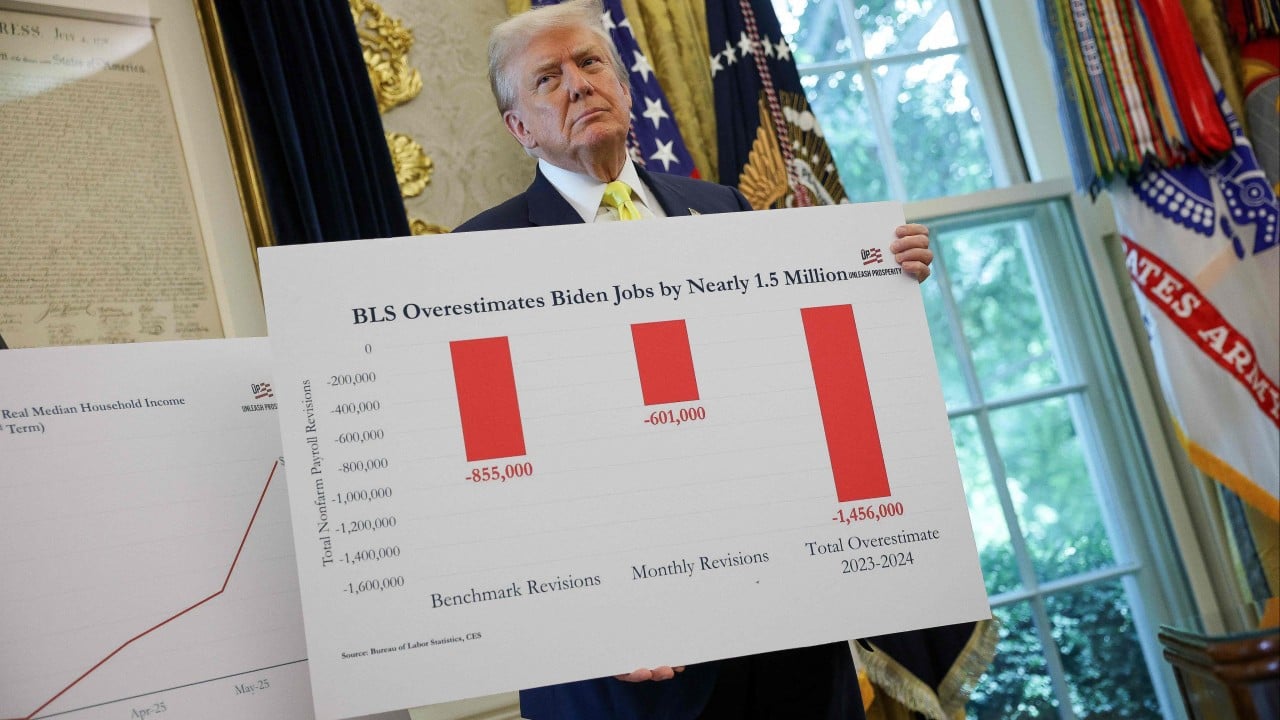Who before this month had ever heard of Erika McEntarfer, the career statistician who toiled quietly and uncontroversially at the heart of the US data-gathering machine, for 20 years at the Census Bureau and more recently as head of the Bureau of Labour Statistics?
Advertisement
Who except US President Donald Trump could have sought to create a firestorm out of dull labour statistics, accusing McEntarfer of rigging jobs numbers to contradict his narrative of a robustly recovering economy, and making an improbable martyr-heroine out of a woman who would not in a dozen lifetimes have sought or attracted public attention?
The answer is that Trump is far from alone in his paranoia over statistics. Many before him have done the same thing – flailing out at messengers who report inconvenient numbers at inconvenient political moments. And their statistical allergies have often resulted in harmful unintended consequences, undermining domestic and international confidence in their economic narratives.
On balance, McEntarfer is lucky to have been scapegoated in the era of Trump. When top Soviet Union statistician Olimpiy Kvitkin produced disappointing numbers in the 1937 census, Joseph Stalin had him shot.
In 2006, Argentina’s president Nestor Kirchner sacked and prosecuted Graciela Bevacqua, the statistician responsible for reporting the country’s (embarrassingly high) inflation rates. In Greece, in the wake of the 2008 financial crisis, Andreas Georgiou, head of the country’s statistical agency, faced charges of corruption and making false statements – for failing to seek political approval for the numbers published.
Advertisement
Economic data has much bigger political importance than the dull statistical sciences would imply, in particular on jobs, inflation or gross domestic product growth. Politically “inconvenient” data has a habit of being embarrassing – or worse – for authoritarian political leaders anxious to develop narratives allowing them credit for positive and visionary progress.

